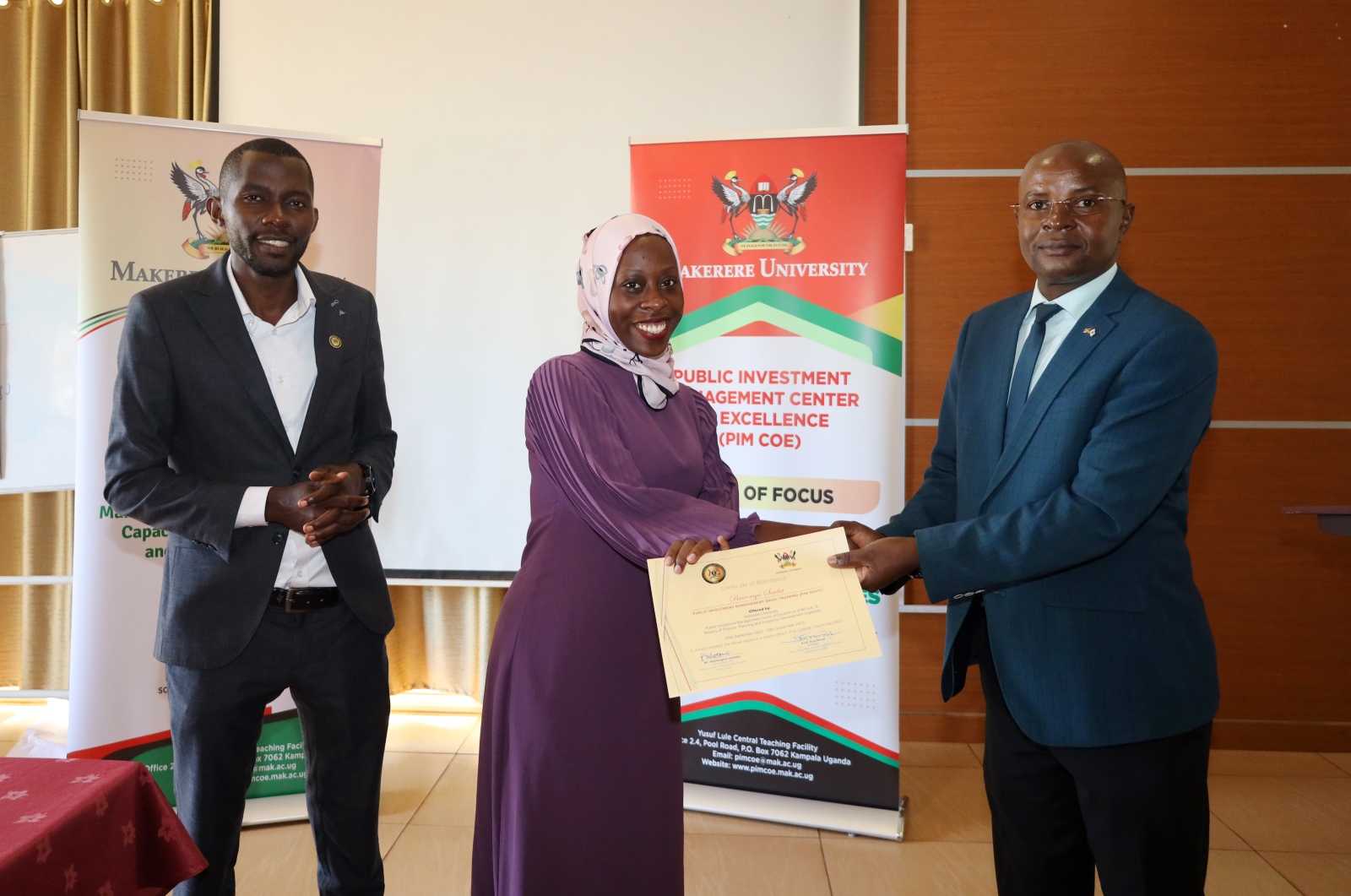This week once again, the Public Investment Management Centre of Excellence is contributing to capacity building of government officers. The center is offering basic Public Investment Management training to a group of forty (40) Economists from different MDAs. Key focus areas has been on how to develop project concept notes and project Profiles in their respective MDAs, use of the Integrated Bank of Projects, Introduction to integrated investment appraisal, key considerations in the Environment and Social Risk management, Monitoring & Evaluation of the projects as well as the Public Private Partnerships in the design and execution of the projects.
Speaking during the open of the training on September 25, 2023, Prof. Ibrahim Mike Okumu, the Dean School of Economics, appreciated the government of Uganda for the support rendered to the center. He also thanked the participants for making the time to undertake the one-week intensive training.
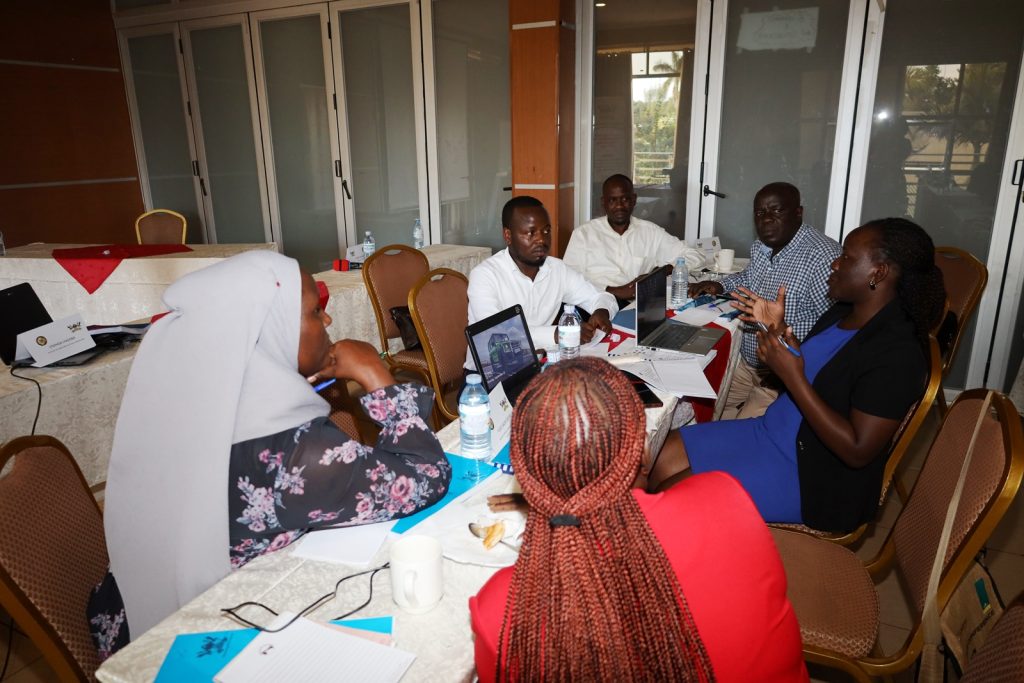
He said he was happy to see participants from Ministries, Agencies, departments, NGOs and academic institutions. “Having university participants gives me the confidence that we as trainers are contributing to curriculum development and review in these institutions,” he said. “Having public and private officers trained shows that we shall have a country that not only works for its self but also for its people”.
He encouraged the participants to participate in the other two modules; Financial modeling and Economic Modeling which will take place in November 2023 and February 2024.
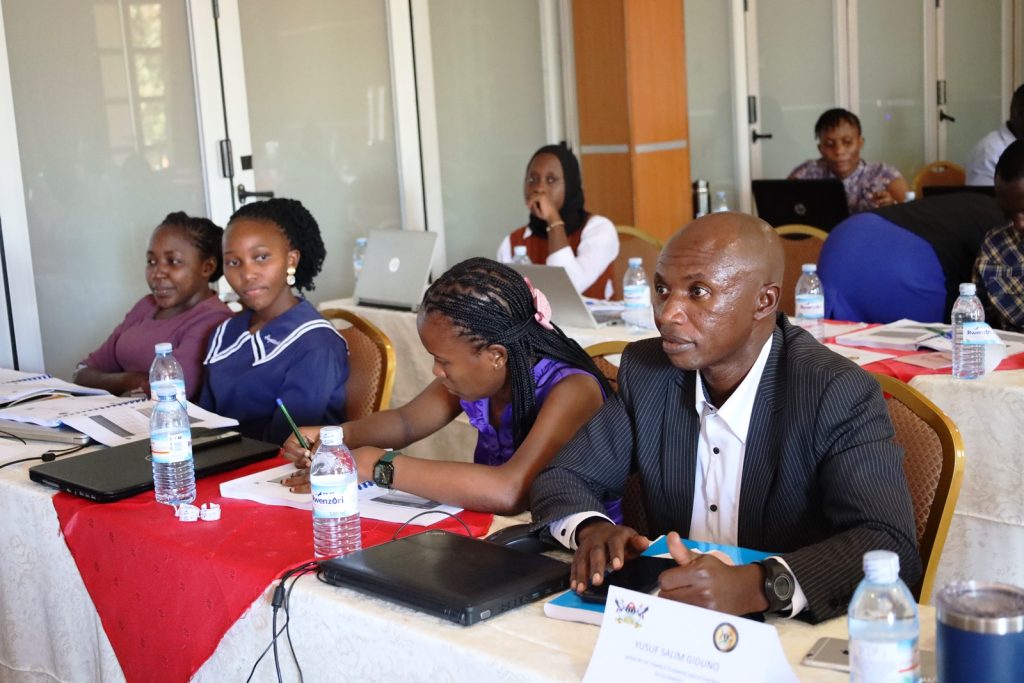
The Centre Manager, Dr. Willy Kagarura, shared with the trainees the reasons for the creation of the center. He shared that the center was formed to create capacity for PIMs in an effort to reduce losses in public investments. This followed a World Bank study which found that Uganda was losing 6 cents of every dollar invested. This was attributed to poor project management, write from the concept stage to implementation. The PIM center has over the last 2 years undertake capacity building, research and advisory services in the areas of PIM. Over 150 public officers have acquired the training. The center hopes to train more than 500 individuals over the next 5 years.
The over 40 trainees who attended the PIM Basic training received certificates following the one-week rigorous training. Speaking during the award ceremony on September 29, 2023, Mr. Joseph Ahaisibwe from the Ministry of Finance, Planning and Economic Development, also one of the trainers was hopeful that the trainees would use the new knowledge acquired to better their performances at work. He called on the officers to ensure that their organizations have functional Project Preparation Committees in an effort to improve PIM. The officers requested that the heads of these government entities also be invited to undertake this training such that they too get this important knowledge. This, Mr Ahaisibwe said the ministry would consider.
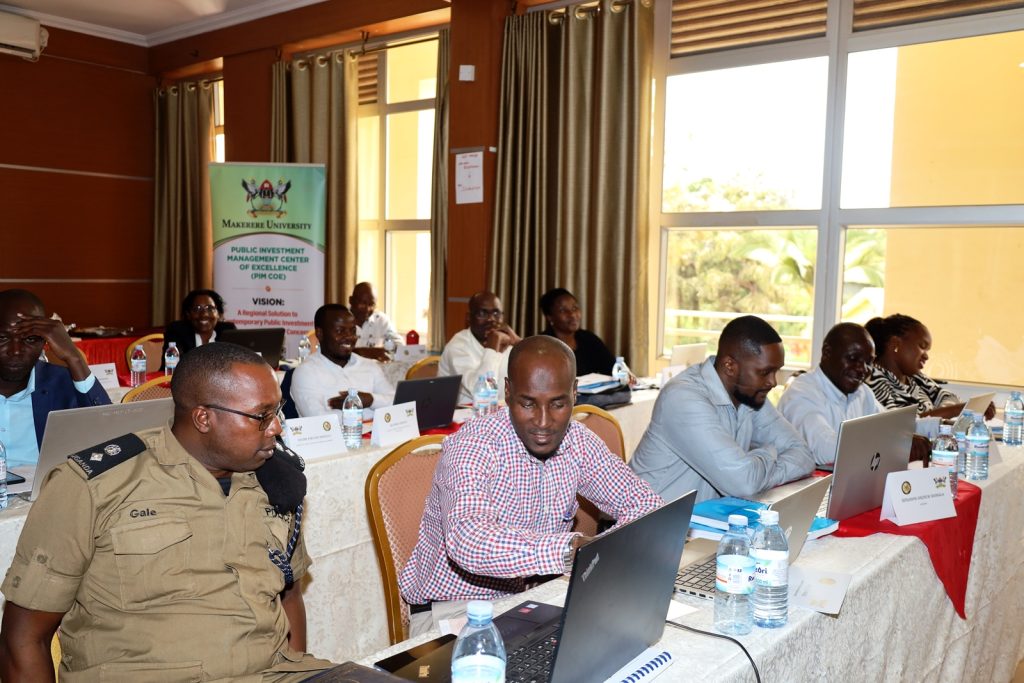
The Director of Research and Graduate Training at Makerere University and also the Principal Investigator of the PIM centre of Excellence, Prof. Edward Bbaale on his part thanked the government of Uganda through MoFPED for the funding to the centre. Their support he said has been instrumental in efforts to enhance the skills and knowledge of government workers in the field of Public Investment Management (PIM).
He appreciated the dedicated faculty members who have contributed to the success of this training program. The experts are drawn from Makerere University, the Ministry of Finance, Planning, and Economic Development, the National Planning Authority, and PEMBROKE Consultants.
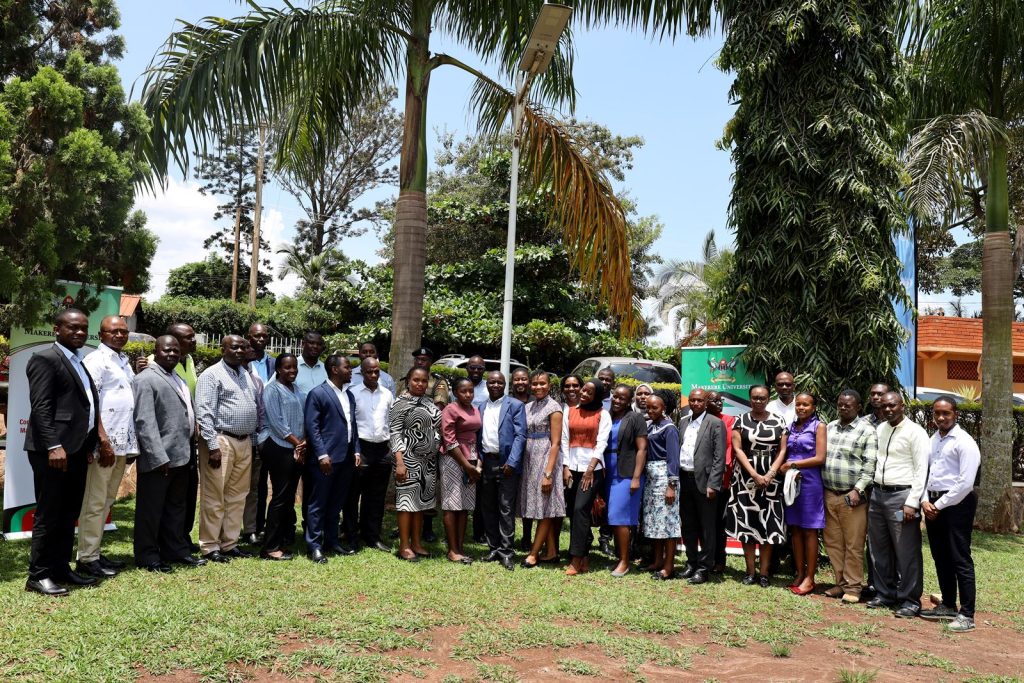
Prof. Bbaale also appreciated the participants for making the time to undertake the course. “I implore you to view this training as the initial step in your journey through Public Investment Management. We invite you to consider advanced training phases in PIM, such as Financial Analysis and Economic Analysis, where we delve deeper into financial and economic modeling. These advanced courses offer a blend of theory and hands-on experience, allowing you to work on real-world projects in sectors like roads, electricity, water, and energy,” he said.
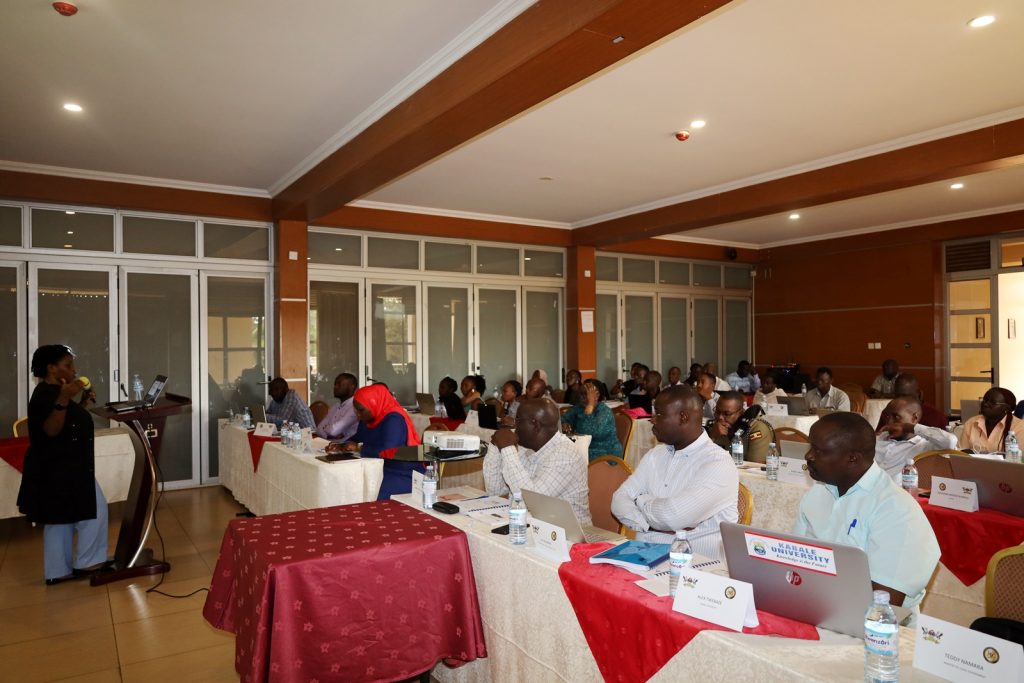
The trainees will be expected to undertake two more intermediary courses; Financial and Economic Analysis.

